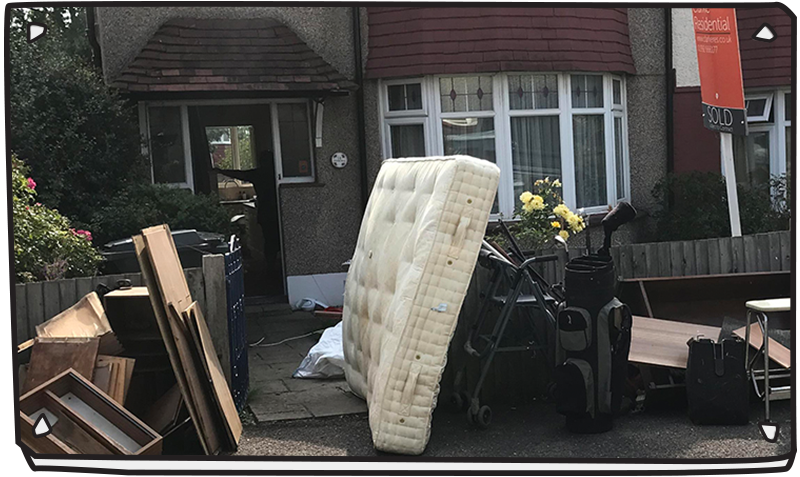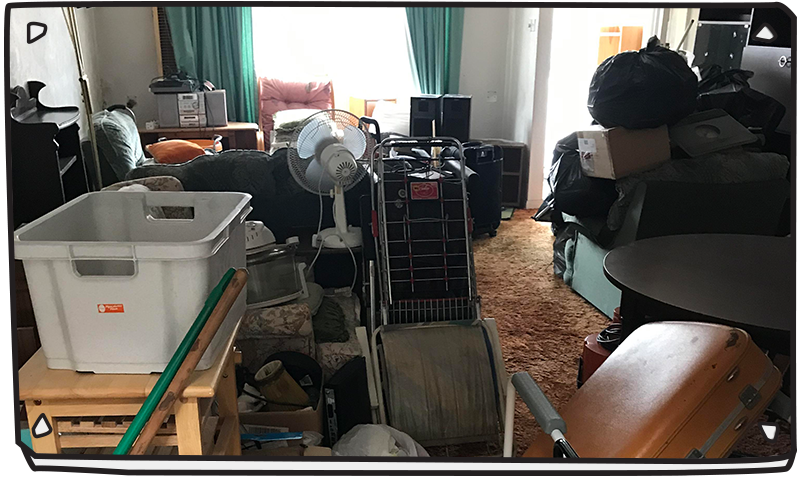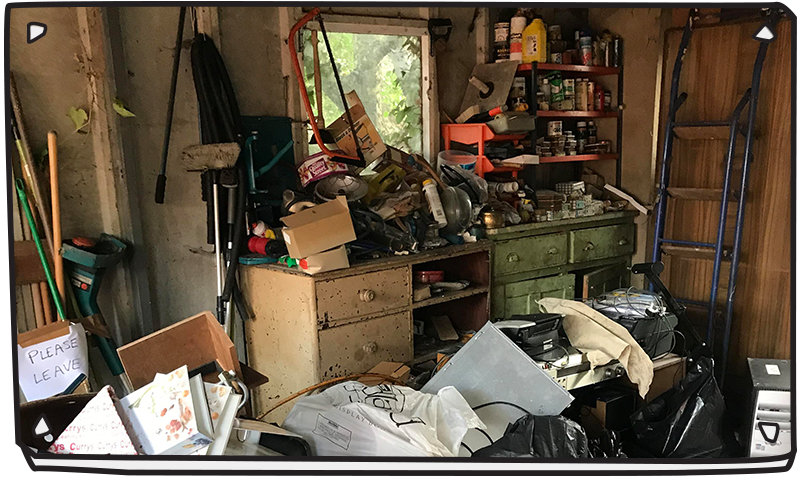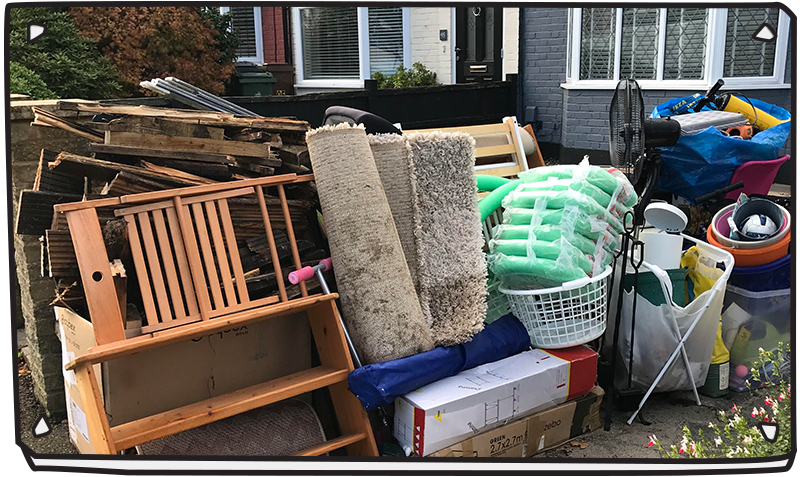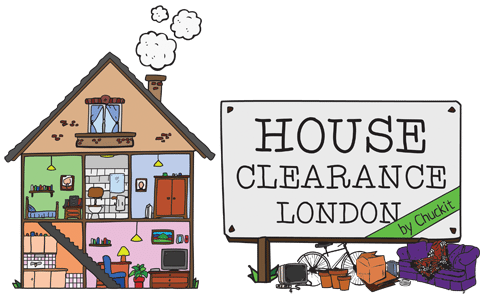This situation can occur when a tenant abandons a property or passes away unexpectedly. The landlord can be left with the property full of miscellaneous items including furniture, paperwork, old tools, and much more. They are left with the task of clearing these items out before flat can be rented to another tenant.

What Is A Wait And Load Service?
18th January 2021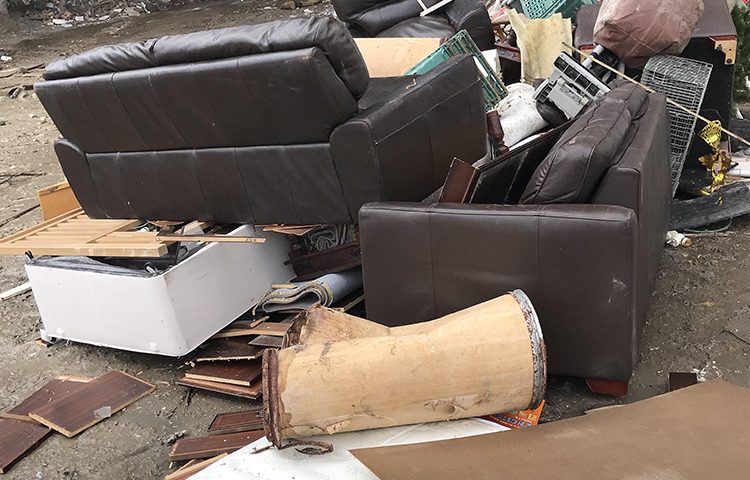

Are Landlords Or Tenants Responsible For Flat Clearances?
Dealing with rubbish, old furniture, and other unwanted items can be a real hassle. However, this is particularly true for landlords who have been left with a rental property full of a tenant’s unwanted items.
But who has to pay for the clearance and what obligations does a landlord have when dealing with a tenant’s possessions? What about the waste that was in the flat before the tenant moved in? Does the landlord need to empty the flat before a tenant can move in?
In this guide, we’ll answer these questions and more. If you require any additional advice, give House & Flat Clearance a call on 0800 612 9477 or 07725 233178.
What Are Tenants And Landlords Responsible For?
Occupied flats
If you are a landlord currently renting out a flat, it is the tenant’s responsibility to deal with the household waste they generate. This includes day to day waste and any items that the tenant decides they no longer want.
However, landlords need to inform tenants of the waste disposal methods that are available. In other words, the landlord needs to show the tenant how waste can be removed from the property. In most cases, this is simply a matter of making council bins available for the tenant.
Unoccupied flats
If a landlord owns an empty flat that contains waste, it is categorised as ‘commercial waste’. The landlord is obligation to remove this waste before a new tenant can move in.
Any waste material created by the landlord during construction, maintenance, demolition, or garden landscaping is also classified as commercial waste. It will be the landlord’s responsibility to deal with this waste even if the flat is occupied or abandoned. They will have to pay for any flat clearance removing this material.
Recently occupied flats
If a tenant moves out, it is their responsibility to deal with any waste and unwanted items that are in the flat. This does not include commercial waste generated by the landlord during the tenant’s stay.
If a tenant leaves items behind when they move out, those items remain the property of the tenant and are protected by the Torts (Interference with Goods) Act 1977. This means that a landlord cannot simply discard those items.
The only exception to this requirement would be when an agreement has been made between the landlord and a tenant. For example, the tenant might give the landlord some of their possessions in return for unpaid rent. If this type of agreement is made, it is crucial that the landlord and tenant document it in writing to avoid confusion and legal issues in the future.
Landlords must take great care when dealing with the items that a tenant has left behind. The landlord should also be aware that the presence of items may indicate that a tenant does intend to return to the property.
If the items in the flat are obviously household rubbish, the landlord can immediately perform a flat clearance. The landlord can then pursue the tenant for the cost of the clearance. The landlord may be able to obtain payment from the any bond previously paid by the tenant.
If the items are not rubbish, the landlord must give tenant notice that they intend to perform a flat clearance and disposal of their property. This is outlined in Schedule 1 of the Torts (Interference with Goods) Act 1977.
The notice should be sent to the tenant’s new address, if it is known. If the landlord doesn’t have an address, they must take reasonable steps to contact the tenant, like calling their phone several times, trying to reach them on social media, calling relatives and so on.
The landlord can move the goods immediately, but they should not sell them or discard them for at least 21 days. A notice should be placed in the flat window, which tells the tenant:
The landlord should also list the costs associated with moving and storing the items, if they were already removed from the flat. If you performed a flat clearance and paid a storage company, add those costs to the notice.
After 21 days, if you haven’t heard from the tenant you are free to sell or dispose of the items. If you sell the items, you can deduct costs, including the price of the flat clearance, storage fees, and sale fees.
However, it’s important to note that the remaining balance must be returned to the tenant, if you can find them. If you cannot find them, you must withhold the funds for at least 6 years, in case they contact you and demand their money. After that point, it will be yours.
Thanks for reading. If you have any other questions or wish to book a flat clearance, give House & Flat Clearance a call on 0800 612 9477 or 07725 233178.
House Clearance.
House Clearance in London. The on demand junk clearance service. With our household waste removal service we can have your home cleared at short notice, no matter how much bulky waste you have to clear.
Flat Clearance.
Flat clearance London, we clear any flat that requires to be part or fully cleared of unwanted old furniture, white goods, electrical waste & household junk from any floor in your home.
Furniture Disposal.
Furniture disposal London, For old sofa, chairs, tables, beds, mattress, chest of drawers and all other unwanted household & commercial furniture for removal & recycling.
Garage Clearance.
Garage Clearance in London. With our waste removal service, we can have your garage cleared the same day or at a scheduled time, even if you’ve let years worth of junk and rubbish build up.
Cellar & Loft Clearance.
Cellar and Loft clearance London. They’re great places to store your old goods, but when you leave your old waste and rubbish too long, pests and dirt can take over. If you need a waste or junk removal service in those harder to access areas, our cellar and loft clearance teams can help.
Rubbish Removal.
Rubbish Removal London. sameday or scheduled rubbish removal and waste clearance from our man and van teams. We do all the work for you whether you need to clear out a room in a flat or a full house clearance. Majority of the waste clearance and rubbish removal service we provide is recycled.


